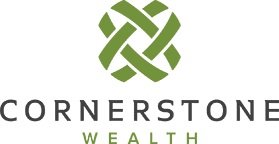How Women Can Boost Financial Confidence in 30 Days
Introduction
As we celebrate Women’s History Month this March, it’s important to reflect on the remarkable strides women have made and continue to make in shaping their financial futures. From breaking barriers in the workplace to taking charge of personal and family investments, women worldwide are redefining what financial independence looks like.
Yet, the road to financial confidence is not without challenges. Many women still face significant hurdles, such as wage inequality, limited financial literacy, and societal expectations. In today’s economic landscape, achieving true financial independence requires more than just earning—it demands planning, investing, and building a legacy of confidence.
Gaining control over your finances is empowering, whether it’s understanding how to create a budget, managing investments as a beginner, or developing a strategy for sustainable wealth. This blog will provide a straightforward 30-day plan to help women achieve the financial confidence they deserve.
Together, we’ll explore actionable steps anyone can take to transform their financial habits and mindset.
This will pave the way for brighter opportunities for women and highlight the legacy of empowerment woven into Women’s History Month.
Why Financial Independence Matters
The Legacy of Financial Independence
Financial independence is deeply tied to the progress women have made throughout history. In celebrating Women’s History Month, it’s vital to acknowledge that gaining control over financial resources has long been intertwined with women’s empowerment.
From the early suffragettes advocating for the right to own property to modern-day champions of women's finance, these milestones have paved the way for individuals to take charge of their futures.
Having the means to make independent financial decisions fosters freedom, stability, and security, allowing women to pursue their goals and dreams without external limitations.
It is a reminder that economic independence is not just about managing money—it’s about creating opportunities and leaving a legacy.
Current Realities Women Face in Finance
Despite strides toward equality, many women still face financial challenges. Wage gaps persist, retirement savings patterns often differ, and women have been underserved in financial literacy and investment guidance for years. Without dedicated support tailored to the needs of women who invest or those embarking on financial planning for women, achieving true financial confidence can feel daunting.
Consider this: studies show that women, on average, live longer than men, making long-term financial planning even more critical for their futures. Understanding why financial independence matters is the first step toward creating a life that aligns with personal aspirations and rising above societal limitations.
Your 30-Day Financial Confidence Plan
Week 1: Understanding Your Finances
Before building financial confidence, it’s crucial to know where you stand. Week 1 focuses on taking a straightforward, honest assessment of your financial situation—laying the foundation for meaningful progress.
● Start by organizing your financial profile. Create a comprehensive list of your income sources, monthly expenses, savings, and outstanding debts. Many advisors specializing in financial planning for women recommend using apps or spreadsheets to track these details efficiently.
● The key is clarity: understanding your financial health helps identify strengths and areas needing improvement.
● Next, analyze your spending habits. Are there unnecessary expenses you can eliminate? Could redirecting a portion of your monthly budget to savings or investments pave the way to financial independence for women? Setting priorities now ensures that future decisions align with your goals.
Finally, decide on a budgeting system that works for you—the 50/30/20 rule (essentials, wants, savings) or a customized cash flow plan incorporating effective money management. The more you can automate processes like bills and savings contributions, the less stress you’ll face in managing your money.
By the end of Week 1, you should feel grounded and informed about your finances—a huge first step on becoming a financially independent woman.
Knowledge is the foundation of empowerment.
Week 2: Learning and Investing Skills
Once you have a clear view of your current financial state, it’s time to expand your knowledge and build the skills to propel you toward economic stability and independence.
Week 2 is all about education—learning the basics of personal finance and entering the world of investments.
Start with financial literacy. Many free or affordable resources, including online courses and podcasts focused on financial planning for women, can help you understand critical concepts like compound interest, the power of budgeting, and the fundamentals of investing.
Educating yourself strengthens your ability to make informed decisions—a vital skill in becoming confident with your money.
If you've ever felt hesitant about investing, this week is the time to overcome that barrier. Platforms designed for beginners, such as robo-advisors or simplified investing apps, offer straightforward ways to start.
Begin small: contributing even $50 monthly to an account focused on a diversified portfolio can make a tangible difference over time. These tools often come with tutorials tailored to women who invest, easing intimidation and boosting your confidence.
To make this week actionable, set specific goals:
● Perhaps open your first investment account or commit to reading a beginner’s guide on stocks and mutual funds.
The aim here is progress, not perfection.
With every new skill or information, you're building a stronger foundation for your financial future through an effective money management strategy.
Week 3: Building Financial Habit Changes
By Week 3, you’ve clarified your financial situation and started building the skills to manage your money effectively. Now it’s time to focus on developing habits that sustain your progress and propel you toward long-term financial independence.
Start by automating your finances. Set up automatic transfers to simplify tasks like paying bills, contributing to savings, or allocating funds for investments. Automation reduces the risk of missed payments and makes saving effortless.
For instance, set your bank account to “pay yourself first,” ensuring a percentage of your income goes to savings or an investment account before anything else.
Next, evaluate your goals using the SMART framework (Specific, Measurable, Achievable, Relevant, Time-bound). Whether you aim to save for a down payment on a house, eliminate debt, or invest for retirement, clear targets help keep you motivated and accountable.
While building these habits, focus on incremental progress. Instead of striving for perfection, commit to small, regular actions—for instance, increasing savings by 1% a month or committing to a “no-spend” day once a week.
These tweaks can have a profound long-term impact without feeling overwhelming.
By the end of this week, you’ll have systems in place and the confidence that comes with consistently making decisions aligned with your financial goals.
These habits will bring you closer to becoming a financially independent woman.
Week 4: Embracing Empowerment through Action
The final week is about implementing your knowledge and taking bold steps toward enhanced financial confidence. This is where mindset and action converge to create momentum, empowering you to embrace the power of women's finance.
● Start by identifying opportunities to increase your income. This could involve negotiating a raise, starting a side income stream that aligns with your skills, or revisiting investments to explore areas that may yield higher returns.
Maximizing your earning potential enhances your path to financial independence for women and creates more freedom in your financial decisions.
Next, prioritize collaboration. Discuss financial plans with your partner or family to ensure alignment and transparency in shared goals. Women who partner in financial planning for women's programs or attend finance-focused workshops often report a boost in self-assurance through shared learning experiences.
Finally, make March, Women’s History Month, a time to give back and inspire others.
Join or lead financial literacy groups aimed at empowering women in your community. Sharing your journey and encouraging others reinforces your confidence and becomes a powerful reminder of the ripple effect created by women lifting each other.
By the end of Week 4, you’ll have implemented fundamental changes beyond financial management, enhancing your overall financial wellness. You’ll have the tools, habits, and newfound empowerment that come with taking active control of your finances, setting yourself up for a future of strength and success.
Inspirational Stories of Women Achieving Financial Confidence
Lessons from Women Investors
Sometimes, seeing others achieve what you aspire to is the most powerful motivator. Women from all walks of life have successfully taken control of their finances, proving that financial confidence isn’t out of reach—it’s a matter of taking action.
For example, consider women who started small with investments. One woman turned her yearly tax refund into a diversified portfolio over time, achieving significant returns while enhancing her understanding of women's finances.
Another inspiring story comes from entrepreneurs who balanced business growth with personal savings. These women didn’t shy away from seeking guidance from financial advisors or resilience in the face of setbacks.
It's not about perfection but perseverance—every step toward financial independence—no matter how small—is a victory worth celebrating.
Role of Community and Mentorship
An empowering takeaway from successful women is the strength found in communities and mentorship. Women’s investment groups, finance-focused forums, and partnerships with committed mentors have propelled countless women to success.
These platforms create opportunities to share insights and foster a spirit of accountability.
Take inspiration from Women’s History Month and explore opportunities to connect with others with similar financial goals. You’ll find support, learn from collective expertise, and grow even more confident with every collaborative step.
The Stakes—What Happens When You Don’t Take Action?
Inaction carries significant risks, such as inadequate retirement savings, financial dependence, or missed investment opportunities. Without proper planning, financial insecurity can become a reality, especially for women who, on average, live longer than men.
The good news is that taking even small steps now—like budgeting or starting an investment account—can replace uncertainty with opportunity.
The rewards of action far outweigh the risks of waiting.
The time to start is today.
Take the First Step Toward Financial Confidence for Women Today
March is Women’s History Month, a time to reflect on the tremendous achievements of women who paved the way for our progress and to take steps to honor their legacy by investing in ourselves.
Building financial confidence for women isn’t just about managing money; it’s about acquiring financial education to create stability, security, freedom, and opportunities for future generations.
With this 30-day plan, you have the tools to understand your finances, build skills, and adopt empowering habits that lead to financial independence for women.
Now it’s your turn to act. Start small, but stay consistent, and watch as your confidence grows with each step.
Take the next step in your journey:
● Download our ebook Discover Your Financial Voice: A Guide for Women—an essential resource packed with strategies to achieve financial independence.
● Schedule a consultation with Kara Kunz, our financial advisor who specializes in helping women manage their finances.
Your path to confidence and independence starts today. Empower yourself, honor the legacy of Women’s History Month, and secure your financial future.
This is for informational purposes only and does not serve as personal advice. Please speak to a qualified representative regarding your unique circumstances. Links within this blog are not associated to Cornerstone Wealth and are subject to change. Hyperlinks will take you to a third-party website whose content Cornerstone Wealth does not control. Investment advisory services offered through Cornerstone Wealth Group, LLC dba Cornerstone Wealth, an SEC registered investment adviser.



